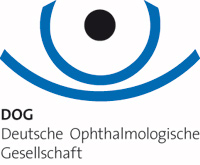 281
281
Recent advances in retinal imaging: to understand and to apply I Symposium im Rahmen der DOG 2025
Fr23
Recent advances in retinal imaging: to understand and to apply I Symposium im Rahmen der DOG 2025
Fr23
Kongress und Veranstalter von Industrieausstellung und Rahmenprogramm
INTERPLAN
Congress, Meeting & Event Management AG
Dachsenstraße 6
20097 Hamburg
Tel.: +49 40 325092-59
Fax: +49 40 325092-44
Tagungsleitung
DOG
Platenstr. 1, 80336 München
Tel.: +49 89 5505 768-0
Fax: +49 89 5505 768-11
-
Basisinformation
Datum26.09.2025, 16:45 - 18:00SymposiumBerlinSpracheDeutschGebühren abgebührenfreiVeranstalterDOG - Deutsche Ophthalmologische Gesellschaft e.V.
OrganisatorKongress und Veranstalter von Industrieausstellung und Rahmenprogramm
INTERPLAN
Congress, Meeting & Event Management AG
Dachsenstraße 6
20097 Hamburg
Tel.: +49 40 325092-59
Fax: +49 40 325092-44
Tagungsleitung
DOG
Platenstr. 1, 80336 München
Tel.: +49 89 5505 768-0
Fax: +49 89 5505 768-11 -
VERANSTALTUNGSORT
Estrel Congress Center (ECC Berlin) I Auditorium von Graefe
Ziegrastraße 225
12057 Berlin, DE -
Programm
Thema:
Fundus imaging, a basic technique in ophthalmologic diagnostics, was revolutionized by groundbreaking advances in the last years: High-resolution OCT gives unprecedented images of the retinal morphology and allows to observe very early pathologic alterations. Adaptive optics fundus imaging and OCT provides a resolution on cellular level. Complementing fundus autofluorescence imaging with spectral and fluorescence lifetime resolution allows for a molecular imaging, revealing pathologic changes fluorophores and/or their composition in diseases such as AMD, retinitis pigmentosa, macular telangiectasia, choroideremia, and Stargardt’s disease. Two-photon imaging will enable the excitation of further fluorophores characterizing the retinal metabolism.
While some of those new imaging techniques showed fascinating things in the lab such as the movement of single blood cells and microglia, the dynamics of photoreceptors in the vision process or the kinetics of photopigment bleaching and regeneration, others are already on their way to the clinics with a huge diagnostic potential. This will greatly enhance our understanding of retinal pathology, will improve diagnostics and therapy monitoring, and may provide new end points for clinical studies.- Organisation / Vorsitz / Chair: Thomas Ach (Bonn)
- Vorsitz / Chair: Martin Hammer (Jena)
-
Gebühren
Fachärzte/-innenGebühren abgebührenfreiÄrzte/-innen in WeiterbildungGebühren abgebührenfreiSonstigeGebühren abgebührenfreiDie Teilnahme an diesem Kurs setzt eine Anmeldung zum DOG Congress voraus. Die Kosten hierfür entnehmen Sie bitte der Hauptveranstaltung (ID: 21131).
-
Buchung / Anmeldung
Bitte wenden Sie sich für weitere Informationen an den Organisator.
-
Zertifizierung
Zertifizierung beantragt für CME Punkte bei der Ärztekammer Berlin
Es wurden für die Teilnahme am DOG Congress 2025 CME Punkte bei der Ärztekammer Berlin beantragt. - Sponsoren
